Knowing
Chronicle of an announced apocalypse
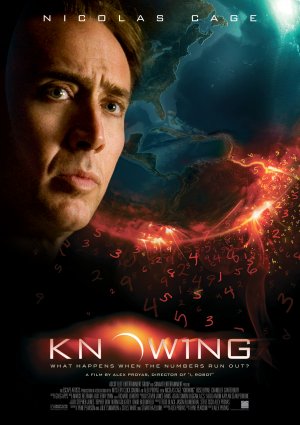
Throughout the history of cinema, it is possible to observe a somewhat morbid interest, both from the producer and the viewer, in apocalyptic movies, which provide impacting scenes of destruction, often from the Earth itself. The movie “Knowing” (USA, 2009), by director Alex Proyas, remains in the genre, and although it repeats many clichés of the industry, it manages to bring something new amid an infinity of mediocrities.
The most difficult question in relation to this film would be how to classify it, whether fiction, suspense, police, drama and even scientific or religious speculation. Maybe because it has a little bit of everything. This is nothing new in the career of Proyas, who has already given us “The Crow” (USA, 1994), “Dark City” (USA, 1998) and “I, Robot” (USA, 2004), all of them with unusual approaches, and always leaving situations unexplained.
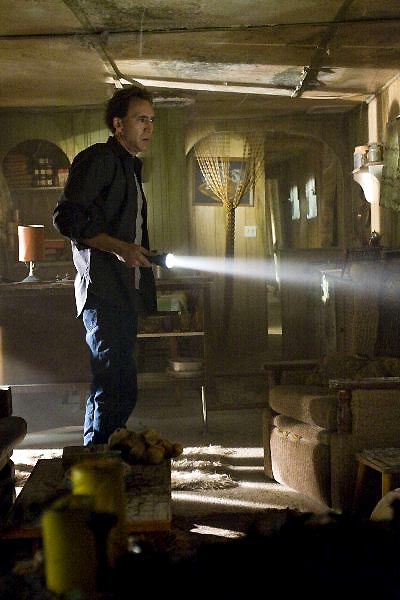
The story of “Knowing” begins in 1959 when, at an elementary school in New York, the children are given the task of drawing pictures or sending messages for a time capsule, which would only be opened fifty years later. The idea came from a strange and introverted girl, Lucinda (Lara Robinson). While the other boys draw rockets and cars from the future, Lucinda fills in a page with seemingly disconnected numbers. The paper is stored together with the others in a metallic capsule, which is buried in the schoolyard.
The same night, Lucinda disappears, for despair of her parents, who seek with the help of police and teachers in every corner of the school. Finally, one teacher finds her, hidden in a closet in the basement, asking to stop the voices.
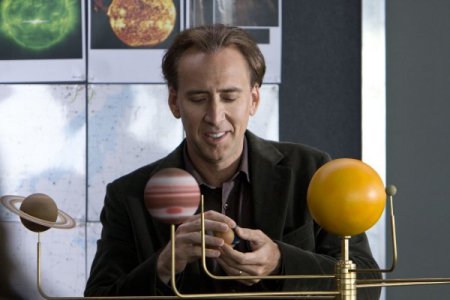
Fifty years later, we find the one who will be the conductor of the story, John Koestler (Nicolas Cage), professor of astrophysics at the renowned Massachusetts Institute of Tecnology – MIT. John is a man embittered by the death of his wife and like most of those who lose a loved one, disenchanted with religion.
His greatest fun in the classroom is provoking students, stating that the existence of them is the result of a mere natural disaster. His only connection to the world is his son, Caleb (Chandler Canterbury). Despite his loving relationship with his son, John finds it difficult to stay connected to the boy’s commitments, while immersing himself in alcohol at night, to escape the memories of the beloved woman.
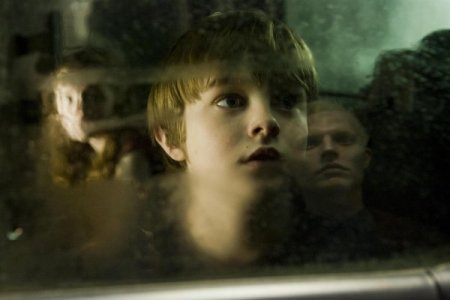
Caleb studies at the same school where had been buried the time capsule in 1959, and a festive event is scheduled to pull it off. The drawings and messages from the boys of the past are delivered to current students, and Caleb takes the mysterious letter written by Lucinda.
From that moment on, strange things start to happen, especially to Caleb. He spots a mysterious man, and complains that he is hearing strange noises, which he attributes to the device he uses to correct a hearing problem.
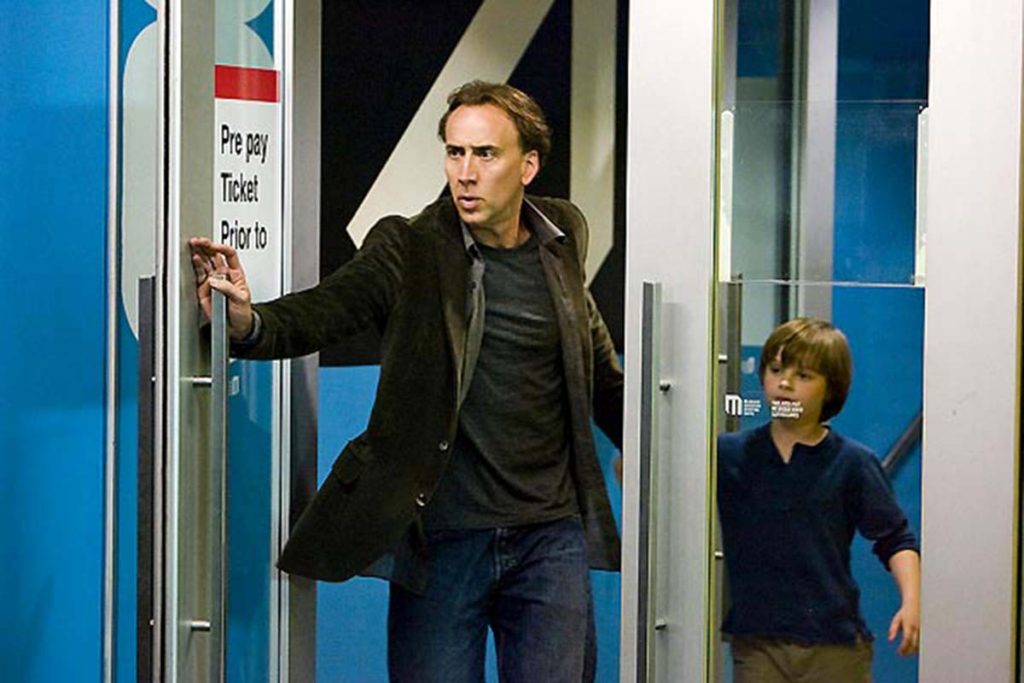
John, for his part, is surprised to find Lucinda’s mysterious letter in his son’s schoolbag. With the scientist’s curiosity instigated by the strange collection of numbers, his attention is aroused by the date “September 11, 2001”. The date, world famous for the attacks on the World Trade Center, could be a mere coincidence, if it were not accompanied by the exact number of people killed in the attack.
Searching the internet, John finds that each group of numbers refers to the date of a tragedy, plane crash, flood, attack, etc., followed by the number corresponding to the people killed in the event. Even the fire that killed his wife, Caleb’s mother, was predicted in the numbers. In the end, he discovers that there are only three events left, all with dates close to the current one.
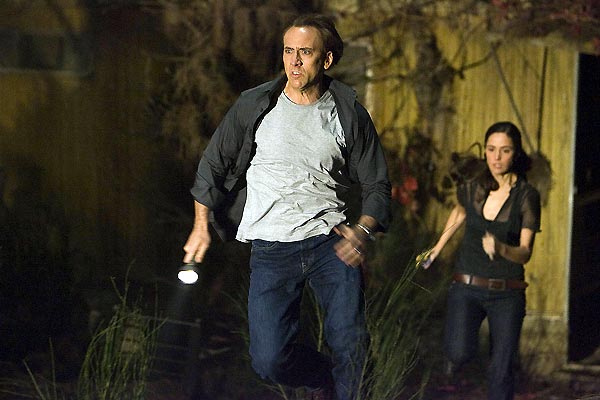
Although his vision as a scientist does not allow one to believe that all the facts were predicted by a girl decades ago, John plunges headlong into an explanation of what could have happened – and what was yet to happen.
In search of explanations, he meets Diana Wayland (Rose Byrne), Lucinda’s daughter, who lives with Caleb’s age daughter Abby (Lara Robinson). When Diana finds out that John wants to know about Lucinda, she runs off with her daughter, leaving the man unexplained.
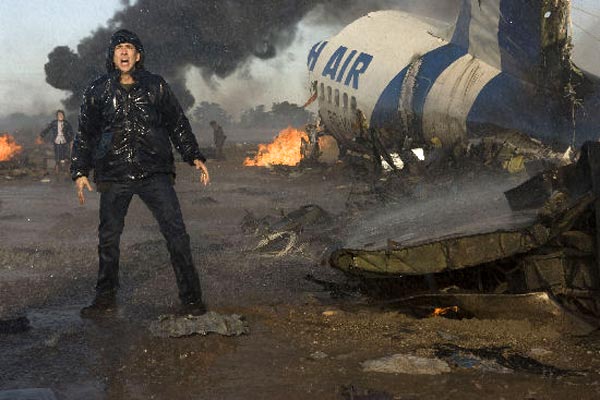
But the predicted tragedies begin to occur, like the crash of a plane very close to where John was standing. The new facts end up bringing John and Diana closer together, as one of the dates mentioned in their mother’s letter referred to the day she said the girl was going to die.
The two go to the trailer where Lucinda lived, and at the same time they discover that the woman had a fixation on the biblical passage of Ezequiel and his encounter with the Cherubims, who tasked him with transmitting apocalyptic messages to men.
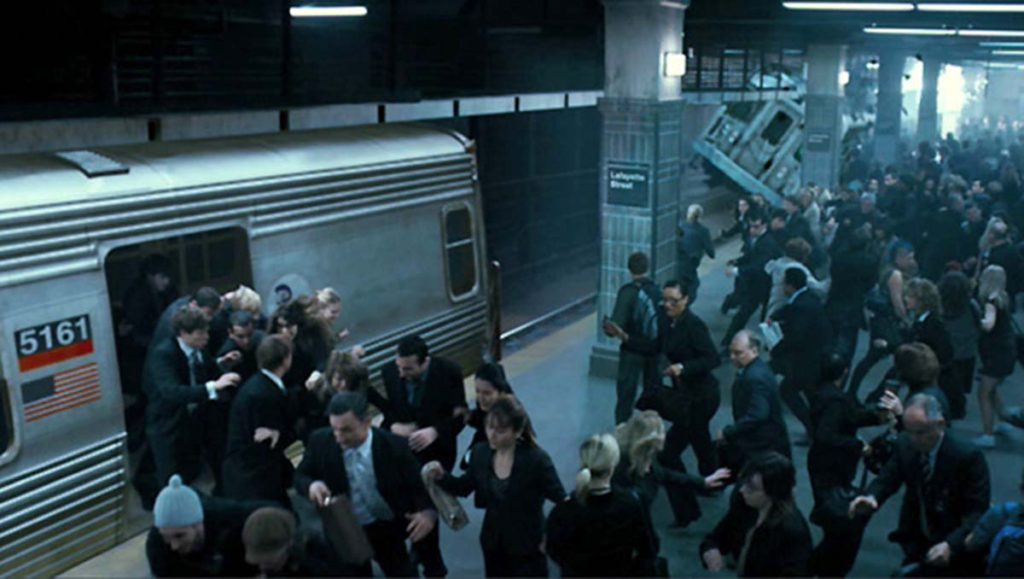
At that moment, the strange men who communicate with Caleb and Abby try to take them, being prevented by the arrival of John and Diana. Now, John runs out of time to find out what the final tragedy is and how to save his son, himself, and perhaps, all of humanity.
The script plays with the spectator all the time, leading him to false clues and the formation of questions: who are the strange men, angels or ETs, and, most importantly, what do they want?
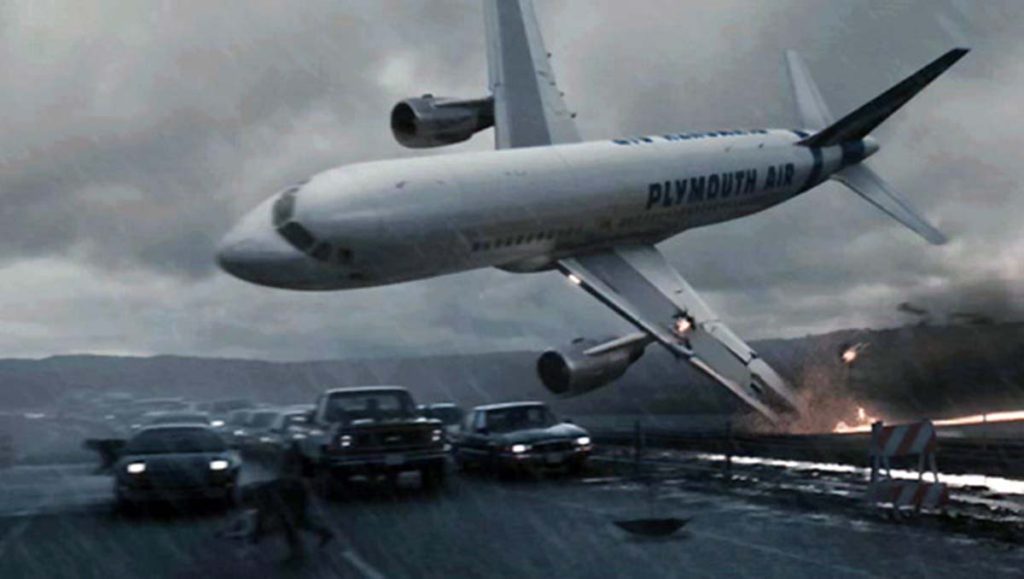
From the first moment it is clear that the movie is an announced tragedy. But, the tension grows, as new facts are added to the story, and very well accompanied by Marco Beltrami’s perfect soundtrack, both in the film’s nostalgic moments and in the most intense scenes.
Noteworthy is the unique performance of Nicolas Cage, who left aside the faces and mouths of “City of Angels” (USA, 1998) and manages to maintain a delicate balance in a character who is neither a thug nor a good guy, just a normal human being in a desperate search for answers.
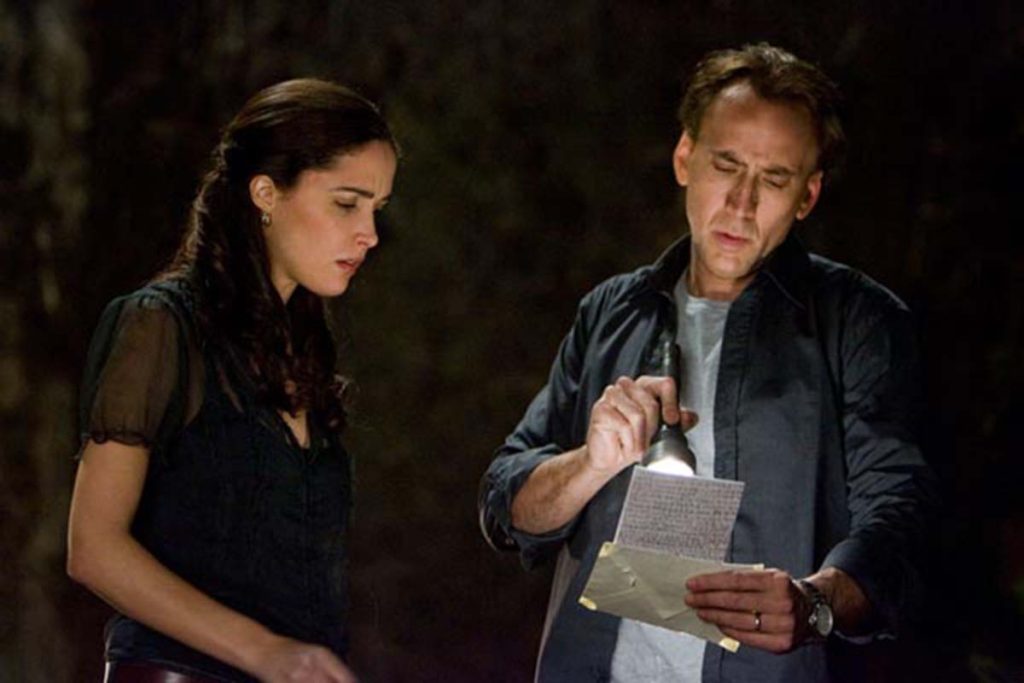
The special effects are excellent and used at absolutely exact times, with emphasis on the scene where the plane crashes, and the subway accident, which are of a frightening perfection. Well, not wanting to spoil the surprise of anyone, as it happens in every good disaster movie, New York is destroyed… again!
“Knowing” is a movie that holds the viewer’s attention until the last minute and will certainly generate a lot of bar discussions, as it leaves several small mysteries unsolved, generating more questions than answers. And just to add something to the confusion, the film brings a sense of déjà vu to the boys of my generation who read “Chariots of the Gods?”, written by a crazy Swiss named Erick Von Däniken in the 70s.





